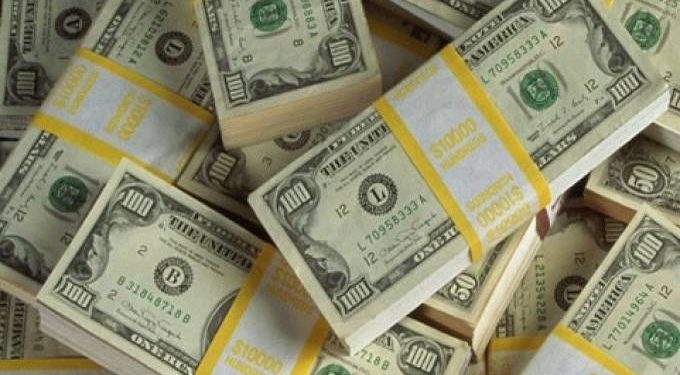On the retail market, several forex bureaus and banks are currently selling the local currency for 8 to one US dollar.
This brings the cedi’s devaluation against the American ‘greenback’ to little more than 16 percent since the beginning of 2022.
However, after only three days of trade this week, the local currency has lost 1.45 percent of its value to the world’s most valuable currency. On Friday, March 11th, 2021, it was selling for around $7.85 to a dollar on the retail market.
In March 16th, 2022, the Bank of Ghana priced a dollar at 7.035 (mid-rate) on the interbank currency market.
The rapid depreciation of the cedi is likely to require the Bank of Ghana‘s Monetary Policy Committee to find an emergency solution to prevent the local currency’s free slide.
The Central Bank is expected to raise the policy rate by at least one percentage point to encourage investors to acquire cedi-denominated assets or to implement steps to halt the rate of cedi depreciation.
Already, several research institutions predict a 20 percent depreciation of the cedi year to date.
The estimate for the following 12 months by RMB, FirstRand Bank’s Corporate and Investment branch, is due to a free depreciation in the local currency in just two and a half months of 2022.
This is based on the growing demand for dollar-induced liquidity tightening as a result of recent downgrades of the country’s borrowing capacity by Moody’s and Fitch, six-year high inflation, and waning faith in the nation’s policy credibility, among other factors.
RMB anticipated additional depreciation in the non-deliverable forward (NDF) market – a cash-settled, and generally short-term, forward contract market – over the following year in a study signed by economist Daniel Kavishe, resulting in the cedi trading at an all-time low against the greenback.
“NDF markets are a pricing-in further weakness of 20% over the next 12 months, with the expectation that the cedi will be trading at 8.7 against the dollar by the end of 1Q23,” RMB said.
“We maintain our view that unless confidence is reignited on the fiscal side, the currency market will remain frail and volatile. The central bank is expected to continue intervening; but given broader macroeconomic concerns, this may not be enough to stave off further weakness,” it added.
To contain shocks during pandemics, the domestic economy must be restructured.
Meanwhile, Professor Peter Quartey, an economist, believes that the domestic economy should be constructed in such a manner that it can absorb shocks during and after pandemics.
Many economists, market observers, and analysts feel the economy has been vulnerable to risks as a result of the country’s economic structure.
Even though the fact that the country has had a trade surplus for the previous four years, many of the commodities consumed are imported, boosting the demand for dollars to purchase the goods.
“Again, government revenue is critical; if the government is not able to rake in the needed revenue to finance its expenditure, it will resort to borrowing again with high-interest rates. And once we have a huge fiscal deficit, the economy will not be able to withstand some of these shocks”, Professor Quartey stated.
He did, however, remark that there is a way out of the problems, noting that “your domestic policy should be structured in a way to cushion you in times of pandemics, in times of any economic shocks.” That is how I think we should figure it out.”
Read Also: ‘Any attempt to implement 10% rent charges on teachers’ salaries would be fiercely resisted’ – GNAT
SOURCE: myjoyonline

























